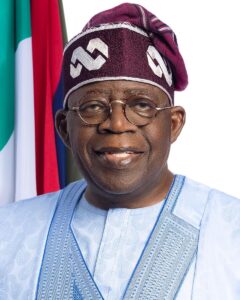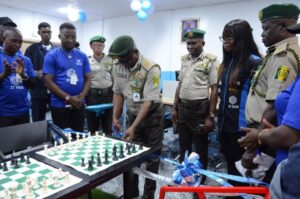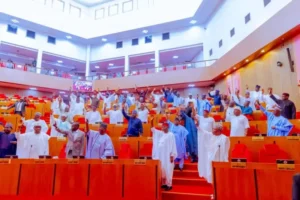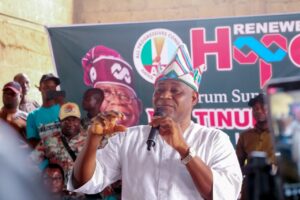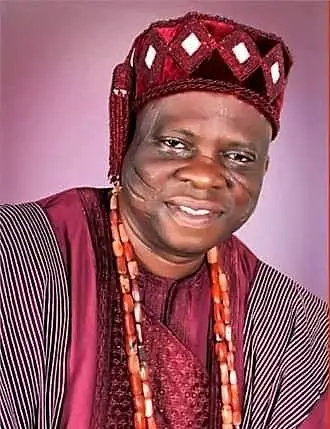
By Adewuyi Adegbite
The Onpetu of Ijeru, Oba Sunday Oladapo Oyediran Lagbami Osekun 111 who doubled as the Chairman of Ogbomoso South Local Government Traditional Council clocks 25 years on the throne of his forebears on June 1, 2024, having ascended the throne on June 1, 1999.
Onpetu of Ijeru is not only an Oba but the head of Oluoje lineage worldwide. Lineage in Yoruba land is called ‘iran’, that is race. Bonafide Yoruba people especially of Oyo stock are identified by their lineages.
Those who do not have Oriki or Orile adopted that of paternal or maternal lines for easy identification. Each lineage has a code of identification known as Orile and lineage poetry called Oriki. Through Orile and Oriki, each lineage preserves its separate identity, history, origin, culture and tradition. In the case of the Oluoje lineage, their Orile is Aro, and part of their lineage poetry reads thus ” Omo paja fun lawo je, ela Moko n ko gbodo je eye Ega, Omo osonu Ile o gbalo, emi ko ni se Alo fun eniti ko feran mi, Omo buni buni, a bi ebu wonti wonti, Omo aroti we bi ojo”.
As a prominent traditional ruler in Yoruba land, he is arguably, one of the five Obas with Oduduwa sanctioned beaded crowns in Oyo state. Aside these Obas namely, Alaafin, Olugbon, Aresa , Olukoyi and Onpetu, all others wearing beaded crowns are either children, messangers or those who enjoy government’s magnanimity. Due to his prominent position, he and his descendants played significant roles in the history of Yoruba nation right from Ile Ife where he originated. At Ile Ife, Onpetu was the monarch of Ido, a semi-autonomous quarter. As the Onpetu, he was the custodian of the Ade Are that is Are crown, a very significant insignia put on by Ooni once in a year at Olojo festival. Aside, he and his co monarchs like Alaafin, Olugbon, Aresa and Olukoyi among others were responsible for the defense of the territorial integrity of Ile Ife in the ancient times. Onpetu later emigrated out of Ile Ife following the pattern in vogue at the time when Oduduwa princes emigrated to found their own kingdoms where they could exercise political power independent of Ife.
After he left Ife, many groups at Ido followed suit and many of these were responsible for the foundation of many Ido towns spreading across Yoruba land with the bulk in Oyo, Osun and Ekiti. The Arole Onpetu still exists in Ile Ife till this day. He is the Olojudo of Ido, Ile Ife. Oje which he established as his town and sit of power played significant roles in Oyo empire.
Though not a provincial capital like Igbon, Iresa, ikoyi and Iwo, Oje Ile played vital role as a supporting town of the empire, she in this regard provided bulk of soldiers in the empire’s military formation. Aside, it was from this Oje as its name connotes that the knowledge of brass making spread to many areas in Yoruba land. It was recorded that there were about 200 brass smith factories in the town. In addition to this, during trouble time in Oyo empire and after the destruction of Oyo Ile the capital of the empire by Ilorin forces in 1835, Onpetu among other monarchs congregated in Ogbomoso upon the order of the Olugbon of Igbon who was next in rank to the Alaafin, to join forces to safeguard the territorial integrity of the remnants of the declining empire.
Congregation of about 143 towns and villages in Ogbomoso from adjoining towns and villages spread across today’s Osun, Oyo, Kwara states which some erroneously tagged refugee helped in safeguarding not only the territorial integrity of Oyo empire but these towns and villages and Ogbomoso the centre of congregation. Though, role of Ogbomoso has been downplayed by historians in the turbulent period in Yoruba land from 1789-1893, the congregation complemented the efforts of Ibadan in sustaining the power of Alaafin over Yoruba land at the period both during Jalumi, Osogbo wars as well as Ekiti Parapo independence war. In addition to this, during the Owu war beginning in 1823, Oluoje warriors from Oje Ile and Ijeru were sent by Onpetu to join Oyo forces to support allies like Ife and Ijebu to fight Owu to submission. Many Oje Ile forces did not return home but joined allies to pursue Egba allies of Owu to Ibadan and were instrumental to seizing Ibadan from Egba and later Ife and turned the town to an Oyo town. Oluoje warriors like Delesolu, Lajubutan and Babalola and among others played prominent roles in the early history of Ibadan post 1830.
Delesolu especially settled at Oje Ibadan and established a market there in memory of the market at Oje Ile or in remembrance of his homesteads. He was a leading Ibadan stalwart during Oluyole era as Bale of Ibadan. Babalola, the father of Bale Fijabi, whom history recorded as the first Ibadan born Bale had been prominent since the period of Oluyedun through Oluyole’s era. Lajubutan was another Onpetu’s warrior son who made his mark in Ibadan during Oluyole era. However, he was among the few who could challenge Basorun Oluyole’s high-handedness He, Akinluyi and few others during Osogbo war of 1840 plotted against Oluyole having defeated Ilorin without Oluyole’’s imput.
This came to the notice of Oluyole through his mole. Lajubu had to flee to Ijaye for their life but and joined the forces with Are Kurumi of Ijaye. Oluyole later lured him back to Ibadan where he successfully eliminated him to further consolidate his hold on the town. For the efforts of warriors like Lajubu, Abayomi of Iresa and others, Oluyole would have been successful in retaining the kingship of Ibadan in his family. There is no doubt that Onpetu Sunday Oladapo Oyediran, Lagbami Osekun 111 is aware of the place of Onpetu in Yoruba history as the Oba is doing everything humanly possible to protect and promote the legacy of the Oluoje lineage as well as her prime position as recorded by history. His period as Onpetu has witnessed tremendous upgrading of Oluoje throne and lineage through the production of Tokuloje, the history of Oluoje lineage in Yoruba land, the book chronicles the exploits of Oluoje lineage right from Ile Ife till the present time. He has equally sustained the age long Odoje festival, a yearly festival like Osun Osogbo where the goddess of Oje River as well as the ancestors of the Oje people is venerated. This festival afforded Oluoje sons and daughters wherever they may be an ample opportunity to relate with one another and knew their homesteads where they migrated far and near.
In the last twenty five years of his reign, his domain which covered Ogbomoso south local government and part of Ogo-Oluwa local government has witnessed tremendous transformation. The domain has also witnessed peace, tranquility and progress. He has equally maintained and sustained the prime position of the Onpetu as a leading Oba in Yoruba land irrespective of what modernity and whims and caprices of politicians have turned traditional institution to. Here is wishing Oba Oyediran more years in the service of his motherland.
Adewuyi Adegbite
ayekooto05@gmail.com.

